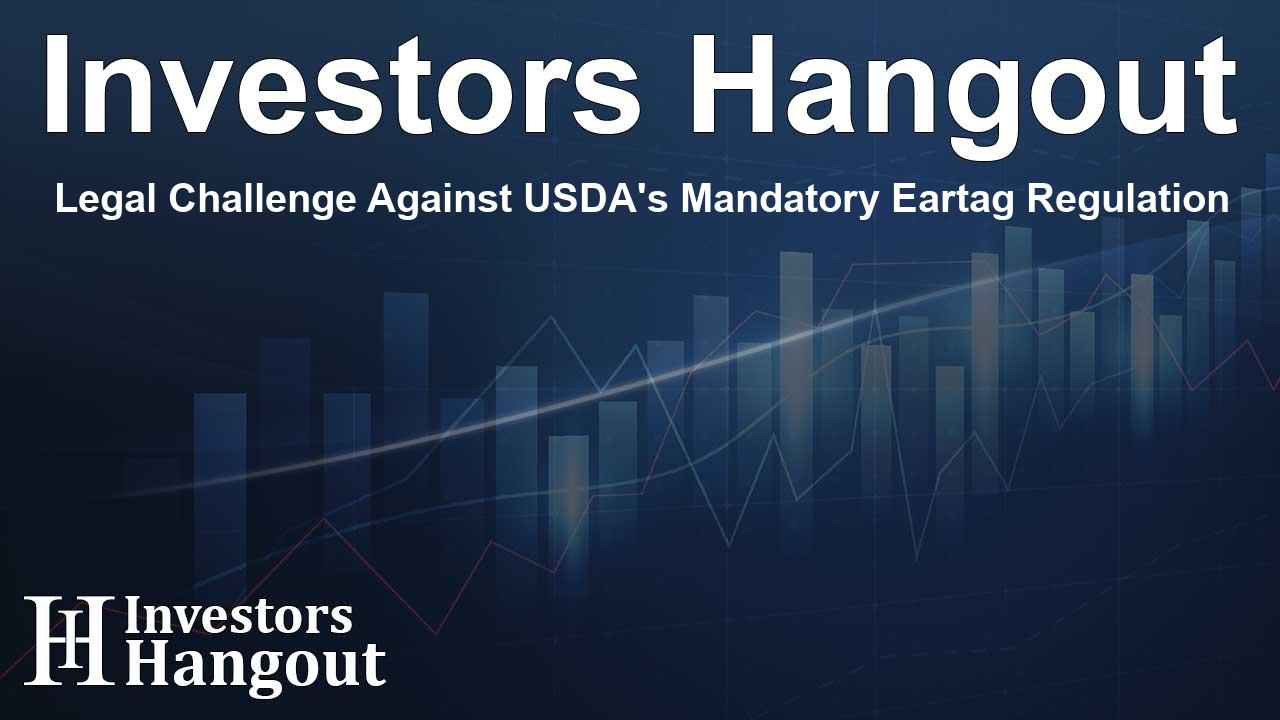Legal Challenge Against USDA's Mandatory Eartag Regulation

Challenging USDA's Eartag Regulation: A Legal Perspective
The New Civil Liberties Alliance (NCLA) has taken a firm stand against the U.S. Department of Agriculture's (USDA) recent decision compelling the use of electronic identification (EID) eartags for cattle and bison. This initiative, which seeks to replace traditional visual tags required for livestock transported between states, has been deemed illegal and unnecessary by the NCLA.
An Overview of the Controversy
The lawsuit centers around the USDA's Animal and Plant Health Inspection Service (APHIS) and its directive that mandates the exclusive use of electronically readable eartags. This move has provoked significant backlash from ranchers and livestock producers, who view this regulation as an infringement on their rights and a burden on their operations. Historically, APHIS allowed various forms of 'official identification' that included visual-only tags. However, this new rule would effectively end the flexibility ranchers have enjoyed for years.
Understanding the Regulatory Landscape
Back in 2013, APHIS introduced a regulation that aimed to improve traceability for livestock. This framework provided multiple identification options, ensuring producers could choose which method suited their operations best. Yet, as time progressed, the agency attempted to push for more stringent requirements concerning radio frequency identification (RFID) tags without success. The recent rule's proposal to mandate EID tags came as a surprise to many, especially considering the existing system has functioned effectively without significant issues.
Unpacking the Legal Arguments
The NCLA argues that the Animal Health Protection Act does not endow the USDA or APHIS with the authority to enforce mandatory EID tags. Recent legal victories have reinforced this stance, highlighting that courts are positioned to question the agencies' interpretations of the law. The NCLA's challenge draws attention to the arbitrary nature of the regulation, indicating that there is insufficient evidence supporting the need for such a drastic change in the tagging method.
Impact on Smaller Producers
One of the most pressing concerns is the financial and logistical strain this new directive would impose, particularly on smaller ranchers. Many independent cattle producers, including members of NCLA like Rick and Theresa Fox and Tracy and Donna Hunt, are worried about the transition costs and the disruptions it could cause in their operations. The regulation could create obstacles that challenge the viability of their businesses.
Statements from NCLA
The NCLA has publicly voiced its criticism of the USDA's actions, with comments from notable figures within the organization. Kara Rollins, a litigation counsel for NCLA, emphasized how the USDA is pushing forward without regard for the legality of its mandates. John Vecchione, another senior counsel, added that the USDA has not substantiated the claims that the current identification system is inadequate.
About NCLA
NCLA, a dedicated nonprofit organization founded to champion civil rights, aims to curtail the overreach of government agencies. It engages in public-interest litigation to advocate for constitutional freedoms being jeopardized by regulatory actions. With efforts directed at restoring fundamental rights, NCLA stands as a guardian against unlawful governmental power.
Frequently Asked Questions
What is the main reason behind the NCLA's lawsuit?
The NCLA's lawsuit challenges the USDA's mandate for electronic eartags, deeming it unnecessary and an overreach of authority.
How does the USDA's rule affect ranchers?
The rule imposes financial and operational burdens, particularly affecting small and independent cattle producers.
What prior regulations existed before this ruling?
Previously, APHIS allowed multiple identification methods for livestock, including visual tags, providing producers with greater flexibility.
What legal framework is being questioned?
The legality of the USDA's actions is being contested based on the Animal Health Protection Act and recent court rulings challenging agency interpretations.
What is NCLA's goal with this lawsuit?
Through this legal challenge, NCLA aims to halt the USDA's unlawful regulations and restore producers' rights and operational choices.
About Investors Hangout
Investors Hangout is a leading online stock forum for financial discussion and learning, offering a wide range of free tools and resources. It draws in traders of all levels, who exchange market knowledge, investigate trading tactics, and keep an eye on industry developments in real time. Featuring financial articles, stock message boards, quotes, charts, company profiles, and live news updates. Through cooperative learning and a wealth of informational resources, it helps users from novices creating their first portfolios to experts honing their techniques. Join Investors Hangout today: https://investorshangout.com/
Disclaimer: The content of this article is solely for general informational purposes only; it does not represent legal, financial, or investment advice. Investors Hangout does not offer financial advice; the author is not a licensed financial advisor. Consult a qualified advisor before making any financial or investment decisions based on this article. The author's interpretation of publicly available data shapes the opinions presented here; as a result, they should not be taken as advice to purchase, sell, or hold any securities mentioned or any other investments. The author does not guarantee the accuracy, completeness, or timeliness of any material, providing it "as is." Information and market conditions may change; past performance is not indicative of future outcomes. If any of the material offered here is inaccurate, please contact us for corrections.









